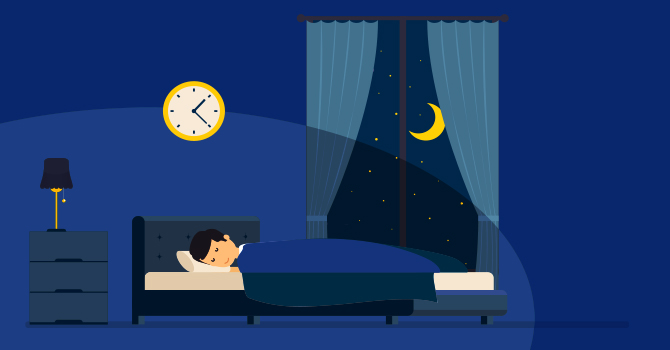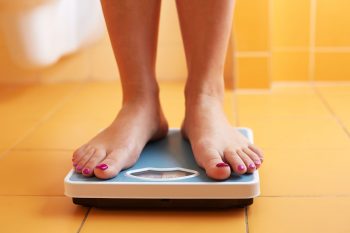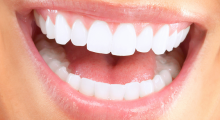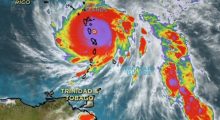Europe’s loneliest countries. Which country has the loneliest people?
A recent survey of EU adults (aged 16 and over) released by Eurostat, the statistical office of the European Union, reveals that 6% of the EU population has no one to ask for help if they need it.
In two Member States, Italy and Luxembourg, the rate is more than double the EU average, respectively 13%.
On the other hand, the situation looks best in the Czech Republic, Finland, Slovakia and Sweden, where only 2% of the population said that they didn’t have anyone they could ask for help if needed.
The survey also reveals that, compared to 2013, in 2015, the levels improved the most in Croatia, by 13.4%, up to 94.5%, Cyprus (97% from 92.9%) and the Czech Republic (98.1% from 94.6%), while in the Netherlands and Estonia, the share of the people who said that has no one to ask for help if they need it decreased by almost 3 percent.
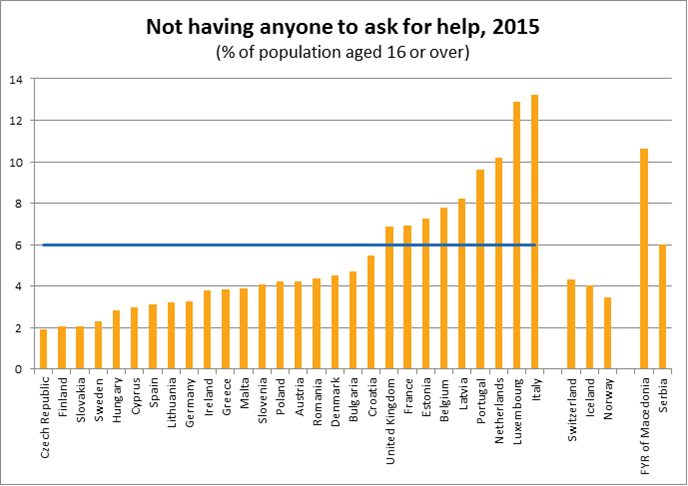
When it comes to the share of the EU population who said that doesn’t have anyone with whom to discuss personal matters, the percentage is the same, respectively 6%.
The highest numbers of people who said that don’t have anyone with whom they could discuss their personal matters were recorded in France and Italy (12%) and the lowest in Cyprus, Spain, Slovakia, the Czech Republic and Hungary (2%).
The biggest improvements from 2013 to 2015 regarding the percentage of people who have someone to discuss their personal matters were registered in Greece (almost 20%), Bulgaria (5.3%) and Croatia (5.2%), while in France and the Netherlands was registered the biggest decline, the share decreasing by 2.6% and, respectively, 1.5%.
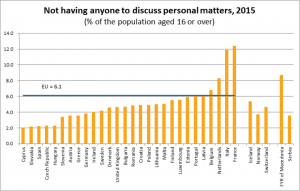
“Income inequality seems to have an effect on social isolation, as this rate was more than twice as large among the Europeans with the lowest income as among those with the highest income,” Eurostat reports.
Feelings of loneliness lead to restless sleep
Scientists conducting a research on young adults in Great Britain have found that, even with all the modern technology aimed at making keeping in touch easier, people are reporting worrying levels of loneliness, which negatively impacts sleep quality. It seems that the stress levels related to feeling alone are the ones that interfere with a good night’s sleep. Thus, according to the study which was published by King’s College, lonelier people were 24 percent more likely to feel tired and have difficulty concentrating during the day.
The researchers at King’s College hypothesised that this could be due to feelings of insecurity. One way in which they tried to measure this is by looking at the data of the youngster that have been exposed to violence, including crime, sexual abuse, child maltreatment and violent abuse by family members or peers. For these participants, the association between loneliness and poor sleep quality was almost 70 per cent stronger.
“We also found that past exposure to violence exacerbated the association between loneliness and poor sleep, which is consistent with the suggestion that sleep problems in lonely individuals are related to feeling unsafe,” said the leader of the study Timothy Matthews, from the College’s Institute of Psychiatry, Psychology & Neuroscience.
“This makes sense as sleep is a state in which it is impossible to be vigilant for one’s safety, so feeling isolated from others could make it more difficult to sleep restfully, and even more so for individuals who have been exposed to violence in the past.”
The association between violence and restless sleep shows that sleep patterns are affected by past experiences and that in order to help, specialists should tailor their responses to each patients’ pre-existing vulnerabilities.
Children as young as six feel lonely and isolated
Not only the adults say they feel lonely, but also children as young as six are struggling with feelings of isolation and loneliness while growing up in today’s society, so they resort to reaching out to Childline.
National Society for the Prevention of Cruelty to Children (NSPCC) runs the helpline and delivered over 4,000 counselling sessions in 2016 – almost 11 per day – to children suffering from loneliness, according to Independent. Almost 73% of counselling sessions about being lonely were with girls.
A while ago the main issues reported by children and teenagers were feelings of being invisible and misunderstood. It is the first time NSPCC has recorded loneliness as an issue. The growth of social media leading some users to set unrealistic standards for their lives is a big factor that led to this problem. Struggling to fit into a new environment after moving house or school and losing someone close are also leading factors.
Due to their low mood, young people spend a lot of time in their bedrooms or online, which further amplifies their loneliness. Some of them begin to self-harm in order to cope with their feelings, or even contemplate ending their life. One 15-year-old girl who contacted Childline said: “I’ve thought about ending my life because I think it’s pointless me being here. I don’t feel like anyone cares about me and I’m lonely all the time.
The Childline website now has a web page dedicated to supporting young people who are experiencing isolation and loneliness. “What is clear is that the world is becoming an increasingly complex place to grow up in with children and teenagers’ facing daily pressures to achieve what society defines as a successful life – grades, relationships, physical appearance,” Peter Wanless, Chief Executive of the NSPCC said.
Loneliness can lead to depression and anxiety and studies have linked feelings of loneliness to a compromised immune system, high blood and increased risks of heart disease and strokes.
